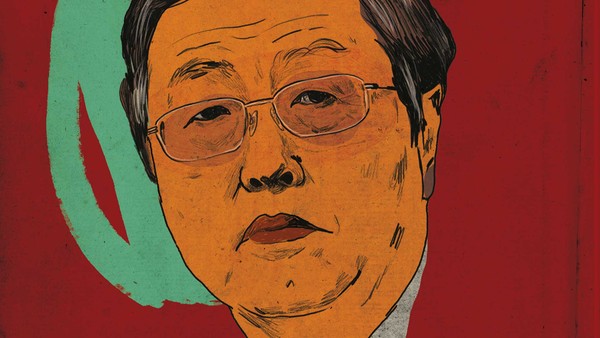The love affair between hedge funds and media stocks is being tested.
Dragged down by concerns their revenue is at risk, cable television
and movie stocks tracked by the 15-company Standard & Poor’s 500
Media Index tumbled 8.2 percent in two days, the biggest slump since
2008. The drop erased 2015’s gains for a group that has been a gold mine
for professional investors, posting annualized returns of more than 33
percent since 2009.
Hedge funds have been near-constant champions of the industry, drawn
in by its high cash generation and buybacks, takeover speculation and
the straight-up momentum of the stocks themselves. This week’s retreat
represents the sharpest rebuke to that thesis -- and one of its only
setbacks in a bull market well into its seventh year.
“A lot of these funds are speculating on deals, they’re investors
playing the spread and not fundamentals,” said Alpha Theory Advisors
president Benjamin Dunn, who acts as adviser to hedge funds with about
$6 billion in assets. “A few of these names are down big today and you
got some pile-on effect with the smaller ones as well.”
Hedge funds own an average 9.7 percent of the 15 companies in the
gauge, according to data compiled by Bloomberg. That’s a bigger stake
than in any of the other 23 industry groups within the S&P 500. The
positions largely reflect merger speculation, said Dunn, who is based in
Crested Butte, Colorado.
Rally Rulers
More than technology or even biotech, media
stocks have ruled the rally that restored $17 trillion to American
equity prices since the financial crisis. Companies from CBS Corp. to
Tegna Inc. and Time Warner Cable Inc. are among stocks with the 60
biggest increases during the stretch.
More than $110 billion in media takeovers have been announced in the
past year, including Charter Communications Inc.’s pending $79 billion
purchase of Time Warner Cable Inc. In the same period, media companies
in the index repurchased an average $2.22 billion of their own shares,
more than any other industry in the S&P 500 apart from technology.
“People are buying other names in the space hoping valuations will
increase for competitors and peers,” Scott Houlihan, a merger-arbitrage
research analyst at Purchase, New York-based OTA Limited Partnership,
said by phone. “Then again, you get a day like this where the whole
sector gets devalued, and if you’re not hedged somehow you get
punished.”
Major Holders
Disappointing
results
from Walt Disney Co. after the close of trading Tuesday sparked the
rout. Selling spread to other television and publishing companies as
quarterly reports from CBS Corp. to 21st Century Fox Inc. and Viacom
Inc. were marked by shrinking U.S. ad sales and profits propped up by
stock buybacks. Viacom fell 14 percent Thursday, its biggest drop since
October 2008, while Fox slid 6.4 percent.
ValueAct Holdings LP, an
activist
investment firm run by Jeffrey Ubben, disclosed a 5.5 percent stake in
Fox’s Class B shares on June 6, while Elliott Management Corp., a hedge
fund run by Paul Singer, is the seventh-biggest holder of the stock,
with a 1.9 percent stake as of March 31.
A spokesman for Elliott declined to comment, and Briana Zelaya of
ValueAct didn’t immediately respond to a phone call seeking comment.
Tensile Capital LLC, a San Francisco-based fund, owns 1.2 percent of
News Corp.’s Class B shares as of the end of the first quarter, making
it the eighth biggest holder. It was the third-largest U.S. public
equity position for the firm at the end of the first quarter, accounting
for 9.8 percent of that portfolio.
Arthur Young, portfolio manager at Tensile, declined to comment.
Evaporating Value
The fourth-biggest stake in Viacom’s Class A
shares is with Ionic Capital Management LLC, according to a March 31
regulatory filing. Ionic’s largest U.S. stock position is another media
company, Media General Inc., which makes up 5 percent of the firm’s
disclosed stock holdings. Media General slumped 11 percent on Thursday.
Caroline Quinn, associate director of investor relations at Ionic,
didn’t immediately return a phone call seeking comment on the stock
moves.
Until Tuesday, media shares were the best-performing stocks of the
bull market, rising 531 percent to eclipse automakers, retail stores and
banks. The industry’s market capitalization was about $650 billion,
compared with $135 billion in March 2009.
That value is evaporating. In just five stocks -- Disney, Time Warner
Inc., Fox, CBS and Comcast Corp. -- almost $50 billion of value has
been erased in two days.
“It’s been a rough few days,” said Walter Todd, who oversees about
$1.1 billion as chief investment officer for Greenwood Capital
Associates. “People are shooting first and asking questions later. As an
investor in Disney and Time Warner, this indiscriminate selling, to me,
is just nuts.”

